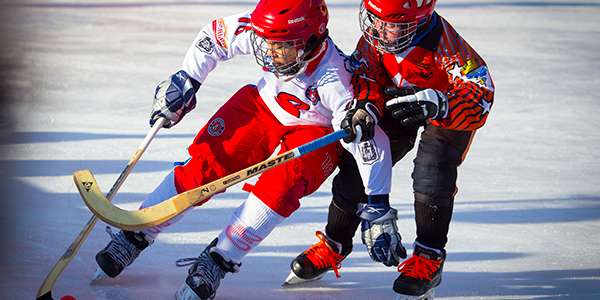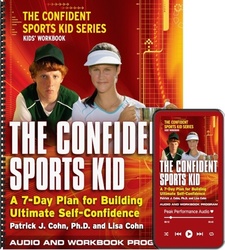
How to Best Support Your Young Athlete
Here at Kids’ Sports Psychology, we receive many letters from parents who are confused about how much they should pressure their kids.
In fact, it’s not an overstatement to say they agonize about this topic…..Agonize, you might ask. Yes. There’s lots to agonize about when it comes to pressuring your kids in youth sports.
Here’s what parents ask us:
- Should I make my child go to practice when he doesn’t want to?
- Should I insist that my 9-year-old daughter try playing a sport?
- I can see many ways my daughter’s basketball could improve. Should I tell her my ideas after a game? Or would this feel like pressure?
- I often tell my son to score 15 points before a game. My hope is to get him psyched, but lately I’m not so sure I’m helping. What do you suggest?
- My kids got mad at me yesterday for shouting positive things from the sidelines. I thought I was supporting them, but now I find out they think I’m pushing them too hard. How should I behave?
Lisa Cohn recently interviewed Ryan and John, 20-year-old Division 1 wrestlers who say they wouldn’t be where they are without the positive support from their parents.
It’s important to make the distinction between support and pressure, they say. Support means attending matches, cheering young athletes on, and videotaping matches. It doesn’t mean pushing kids to take part in sports, or pressuring them to excel, the wrestlers note. It doesn’t even mean talking about technique or trying to coach them before and after matches. Their parents left that to the coaches.
“I started wrestling as a kid because I loved roughhousing with the other kids in the neighborhood,” says Ryan, “I gained a passion for it after I had done it for a couple of years. Every October I would start thinking about how much I wanted to wrestle, about how much I wanted the season to start.”
“My parents didn’t push me at all to wrestle in college. I wanted to. I am a walk on to the team; I pay for my own college, so it is completely my decision,” he says.
“My parents played a huge role in high school. My parents came to every one of my wrestling matches. I have videos of about all of my matches taken by my parents. My sister was even the statistics girl,” he says.
Only once does he remember his father being critical of a match. Ryan told him he had done his best and didn’t appreciate the feedback; his father never criticized him again, he says.
After a match, the car rides home were mostly full of laughter, he says. Many parents and coaches have told use nightmare stories about the car ride home. “In high school, I won most of the time so there was a big smile on my face and we were always laughing. My mom would laugh about my face during one of the moves or something,” he says.
Another Division 1 wrestler, John, garnered a sports scholarship after wrestling alongside his brother most of his life. For him, wrestling is a family affair.
“Both my parents really supported us. My mom was a huge swimmer and my dad was a great baseball player, so they knew what it was like to play sports. So they knew what support we needed and they were always there for us no matter what we needed,” he says.
What was the most important factor that got these wrestlers where they are?
“Just liking the sport that I was doing and having fun doing it,” says Ryan.
Here at Kids Sports Psychology, we agree that these parents knew just what they were doing. Their aim was to ensure their young athletes enjoyed sports–as kids, teens and into their adulthood. They served as their kids’ cheerleaders, and these two young athletes are reaping the benefits.
Related Sports Psychology Articles
- Why Parents Need to Support Their Kids’ Mental Game
- Self-Criticism In Youth Athletes
- Why Young Athletes Quit Sports
*Subscribe to The Ultimate Sports Parent Podcast
*Subscribe to Peak Performance Sports on Youtube
Download a free sports psychology report to improve your mental game!
The Confident Sports Kid

When kids lack confidence, they doubt themselves, stop taking risks, play tentatively, and are hard on themselves. As a result, kids often lose their motivation to improve. Ultimately, these barriers keep them from enjoying sports and making the most of their physical talent.
“The Confident Sports Kid” program is actually two programs: one that teaches sports parents how to boost their kids’ confidence, and another that teaches young athletes age 8 to 18 how to improve their self talk, avoid negative thinking, overcome expectations that limit confidence, and much more. The program will help kids boost their confidence in sports and life…and enjoy sports more.
